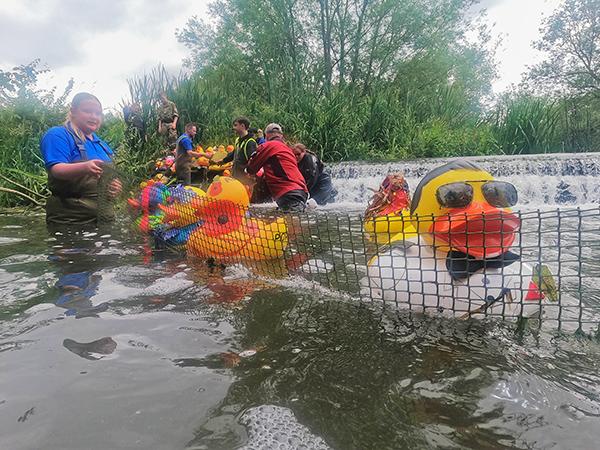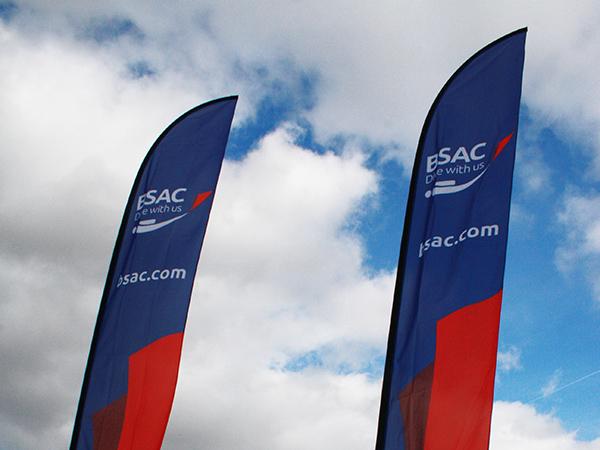Most Skill Development Courses (SDCs) can be staged in clubs – providing that you have appropriately approved instructors and resources.
A regular and varied programme of SDCs throughout the year helps to promote a healthy club environment – and generates well-trained members with good skills.
This page outlines many aspects that a club needs to consider when staging SDCs:
- Planning what courses to run and involving all members.
- Costing an event.
- Inviting members from other clubs.
- Entry requirements and qualified instructors.
- Ordering training packs.
- Course administration.
- Certification process.
- Dive Leader training covered by some SDCs.
Which course?
There are many differing needs within clubs for SDCs. The principles that are best adopted are:
- Establish the training requirements of the club.
- Good ‘general’ courses that contribute to the safe diving within the club are O2 Administration, First Aid for Divers and Practical Rescue Management.
- Many courses are open to non-diving or Ocean Diver trainees, like Boat Handling. This helps to involve new members at an early stage.
- There may be a demand from members to seek training in technical diving skills such as rebreathers and mixed gas.
- The important thing is trying to achieve a balance that meets the needs of all members of the club and prioritising the training needs.
Seasonal training
Some SDCs are suited to the different seasons and this should be considered – i.e. ‘indoor’ courses such as O2 and First Aid may be better suited to winter months. Again, this all helps to maintain interest and enthusiasm throughout the year.
Costing an SDC
All SDCs (and assessments like Lifesaver and Diver Coxswain) attract a fee with BSAC HQ. This fee provides the course pack or reference material, logs the qualification on the member’s records and provides the qualification card. Fees vary according to the course. The costs of all SDCs are detailed in the BSAC Shop.
Additional course costs will be incurred which will need to be taken into account when estimating the cost per student. These may include:
- Hire of lecture/dry practical venues.
- Entrance fees to open water venues.
- Expenses of instructors working on the course.
- Hire of equipment for the course.
- Cost of towing boats.
- Boat fuel.
- Launching fees.
- Trailer parking.
- Hard boat charter.
- Instructional materials, etc.
Also, consider the cost of course consumables (paperwork - planning sheets, course instructions etc., refreshments, photo copying, printing, etc.).
So, to arrive at an estimate for the cost of the course, consider:
- The course training pack cost.
- The additional course expenses including consumables.
- Divide by the number of students.
Inviting members from other clubs
Often a Skill Development Course cannot be sustained with only the members of one club. The course could be offered to other members within BSAC. Networking with other nearby clubs can be beneficial to make a larger event which will be:
- More economical to stage, reducing the cost
- Opportunity for better interaction with a larger group
- Promoting inter-club activity
Who can attend and who can instruct
Many SDCs can be enjoyed by non-divers and Ocean Diver trainees. SDCs are really accessible.
- Download the Diver progression chart to see who can do what SDCs
- Who can teach SDCs
Ordering training packs
Each candidate requires their personal copy of the SDC training pack at the time of the course and these can be purchased from BSAC Shop or by calling +44 (0)151 350 6202.
Course administration
Prior to the event:
- Before the event, the course ‘joining instructions’ should be issued.
- The qualification of the students must be checked. Their name, membership numbers, and addresses will be required for the completion of the QCard Application Form. Students must attend all elements of the course and therefore a checklist should be compiled of students attending. This will be especially important when the course is run over two days or where the lectures are done over a period prior to any practical elements.
- The fees need collecting and the total cost to the student must be announced.
- The course timetable should be issued.
- The course programme should be issued.
- Dive plans for any open water activities must be drawn up and approved by the Club DO.
- Voyage plans if required, prepared and approved by the Club DO.
- Receipts collected for any course costs.
During the event:
- A register of students attendance for all elements / days should be kept.
- Student packs issued and prior to any ‘in water’ practical elements.
- Dive Management logs to be kept for open water activities.
- Payment of any fees due (venues, launching, etc.)
- Receipts collected for any course costs.
After the event:
- Qualification Card Application forms completed and sent to BSAC HQ. There is also an online facility.
- Course Accounts completed.
- Report for Diving Officer / committee.
- Student’s QRB’s signed up (where appropriate) by the Lead Instructor.
- Where there have been assistant instructors working to gain ‘approved instructor’ status, the appropriate forms should be completed by the Lead Instructor. More on becoming an Approved Instructor
Certification process
With each training pack there is a card application form with a unique reference number. Sending the completed the form to BSAC and attaching a passport-size photo records the member’s certification and generates the production of a qualification card.
If these application forms are lost, a replacement application will need to be purchased.
Complete digital form, save and email with photographs
Clubs can return the paper copy or alternatively use the online certification process
The unique reference number printed on the paper copy of the application form is essential for the online process.
Dive Leader training covered by some SDCs
Some SDCs will cover training in the Dive Leader syllabus and it is appropriate for Diving Officers to endorse a member’s qualification record if these SDCs are completed:
- Oxygen Administration (DT2-DT7)
- Practical Rescue Management (DT9-11, DO5)
- Dive Planning and Management (DT1, DT8, DP1)
- Accelerated Decompression Procedures (DO1)
- Search and Recovery (DO4)








